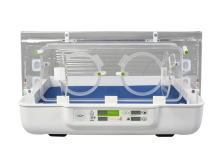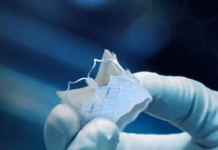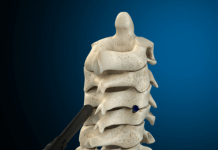WB001 is the first digital therapeutic designed to reduce the burden of postpartum depression
Woebot Heath, a pioneer in the development of relational technologies and tools to support mental health, today announced that the U.S. Food and Drug Administration (FDA) has granted Breakthrough Device Designation to the company’s digital therapeutic for the treatment of postpartum depression (PPD). WB001 is an investigational digital therapeutic, delivered over 8 weeks via a patient’s smartphone, that combines cognitive behavioral therapy (CBT) and elements of interpersonal psychotherapy (IPT) with a deep understanding of the lived experience of PPD to reduce symptoms of depression. Intended as a prescription-only treatment to be used under the supervision of a clinician, WB001 also features the company’s proprietary relational agent Woebot, which was shown in a recent study to be capable of forming a bond with patients to support meaningful engagement and, potentially, better outcomes.
The FDA Breakthrough Device Program is intended to help patients receive more timely access to technologies that have the potential to provide more effective treatment or diagnosis for life-threatening or irreversibly debilitating diseases or conditions. FDA’s grant of breakthrough designation will allow Woebot Health to interact with FDA through several different program options to efficiently address topics as they arise during the premarket review phase, receive feedback from the FDA, identify areas of agreement in a timely way and receive priority review of its marketing submission.
PPD, according to the Diagnostic and Statistical Manual of Mental Disorders, 5th Edition (DSM 5), is a major depressive episode with symptom onset during pregnancy or within four weeks of delivery. As many as 20 percent of women who have given birth experience PPD which, when left untreated, can present immediate and long-term risk to the mother and infant. Despite the prevalence and risks of PPD, almost 60 percent of women who experience PPD symptoms do not receive a clinical diagnosis. Among those who do screen positive for the condition, less than 25 percent receive follow-up care. Treatment options are few and include an expensive intravenous therapeutic, antidepressant drugs and a referral to a psychiatrist or therapist, a solution hampered by long wait times for appointments and the associated stigma of asking for help.
“The odds are truly stacked against women who are hit with barriers to treatment right after childbirth, especially those of lower socioeconomic status and/or minority populations who are at a higher risk for PPD but face ongoing and concerning care disparities that pervade the mental healthcare system,” said Woebot Health’s Chief Clinical Officer Athena Robinson, Ph.D. “WB001 is designed to significantly reduce barriers to PPD care that often thwart help-seeking and treatment engagement behaviors—including lack of time, childcare issues, stigma and fear of loss of parental rights. We’re proud to be offering a scalable, clinically-validated digital treatment for such a pervasive, serious and heartbreaking condition.”
Proprietary research conducted with postpartum adults and clinicians at the onset of WB001’s development informed the treatment’s engagement and relational characteristics, which include targeted topic areas, empathy, normalization, and clinical memory. Designed with the nuance of the PPD experience in mind and combining the active elements of proven therapeutic approaches delivered by a relational agent, WB001 is designed to increase patient motivation and treatment efficacy in a noninvasive way.
Decades of published research support CBT and IPT in the treatment of depression including PPD specifically; CBT and IPT are recommended by the American Psychiatric Association (APA), American College of Obstetricians and Gynecologists (ACOG), United States Preventive Services Task Force (USPSTF) and the National Institute for Health and Care Excellence (NICE) for the treatment of PPD. WB001’s content includes psychoeducational lessons and CBT- or IPT-specific tools. The lessons teach PPD-specific information to normalize and contextualize postpartum experiences, as well as provide mood management and mental health promotion. The CBT-based tools guide patients through behavioral practices such as thought challenging, behavioral activation, mindfulness and self-care, while the IPT-based tools address relationship transitions, communication analysis and skill building, as well as role/identity changes.






